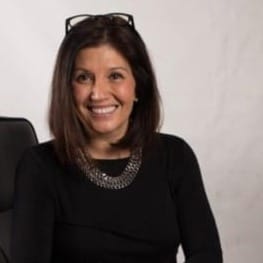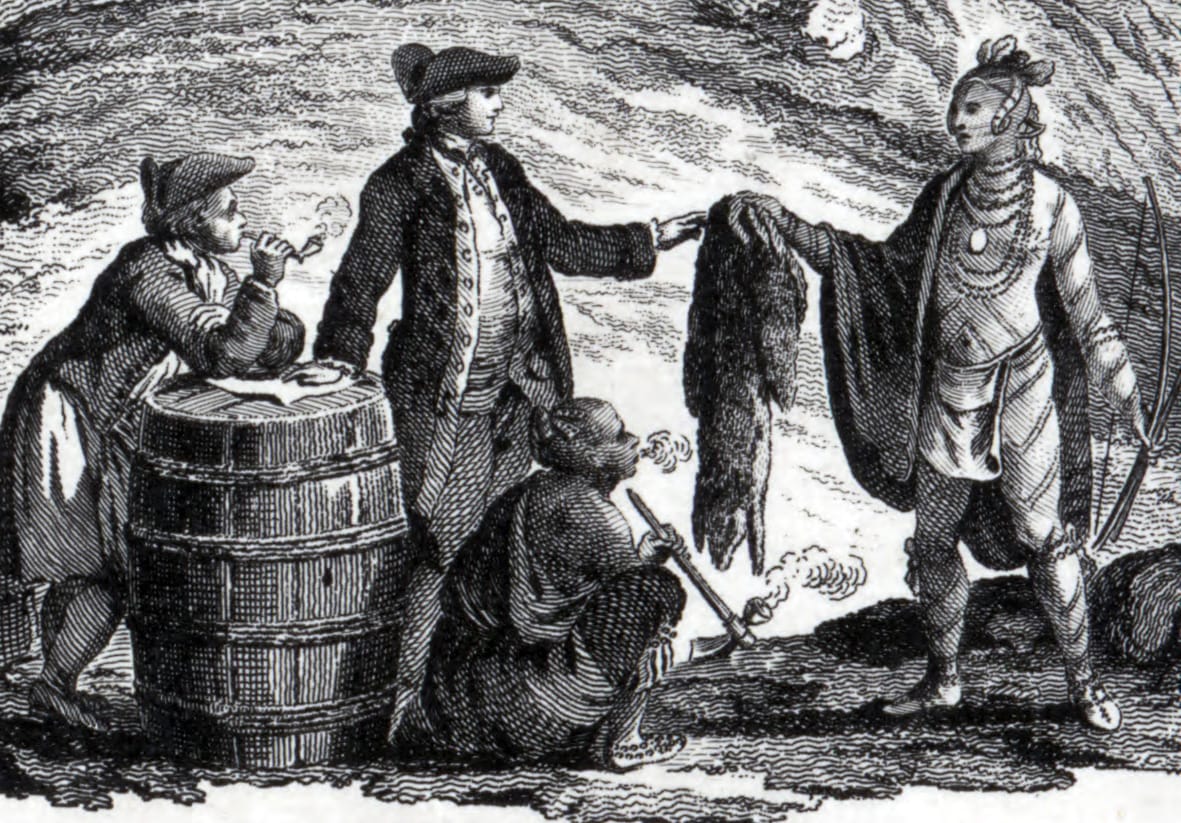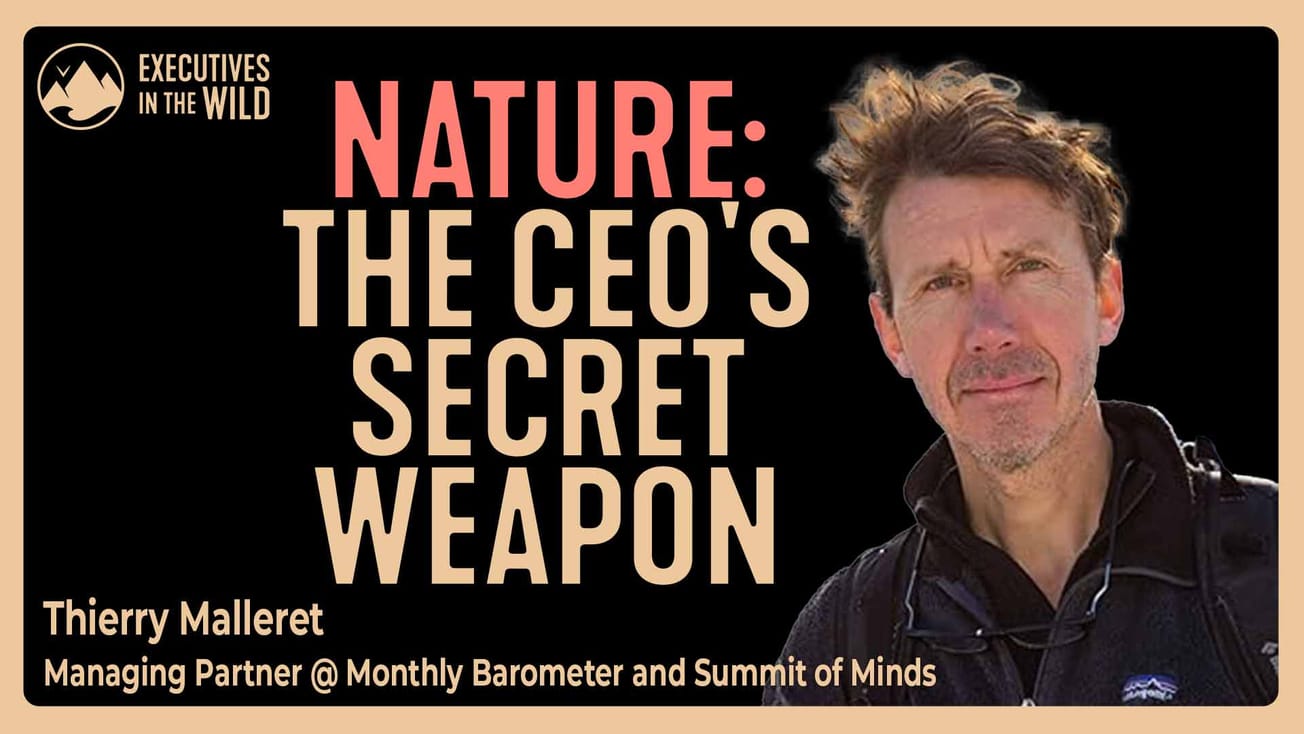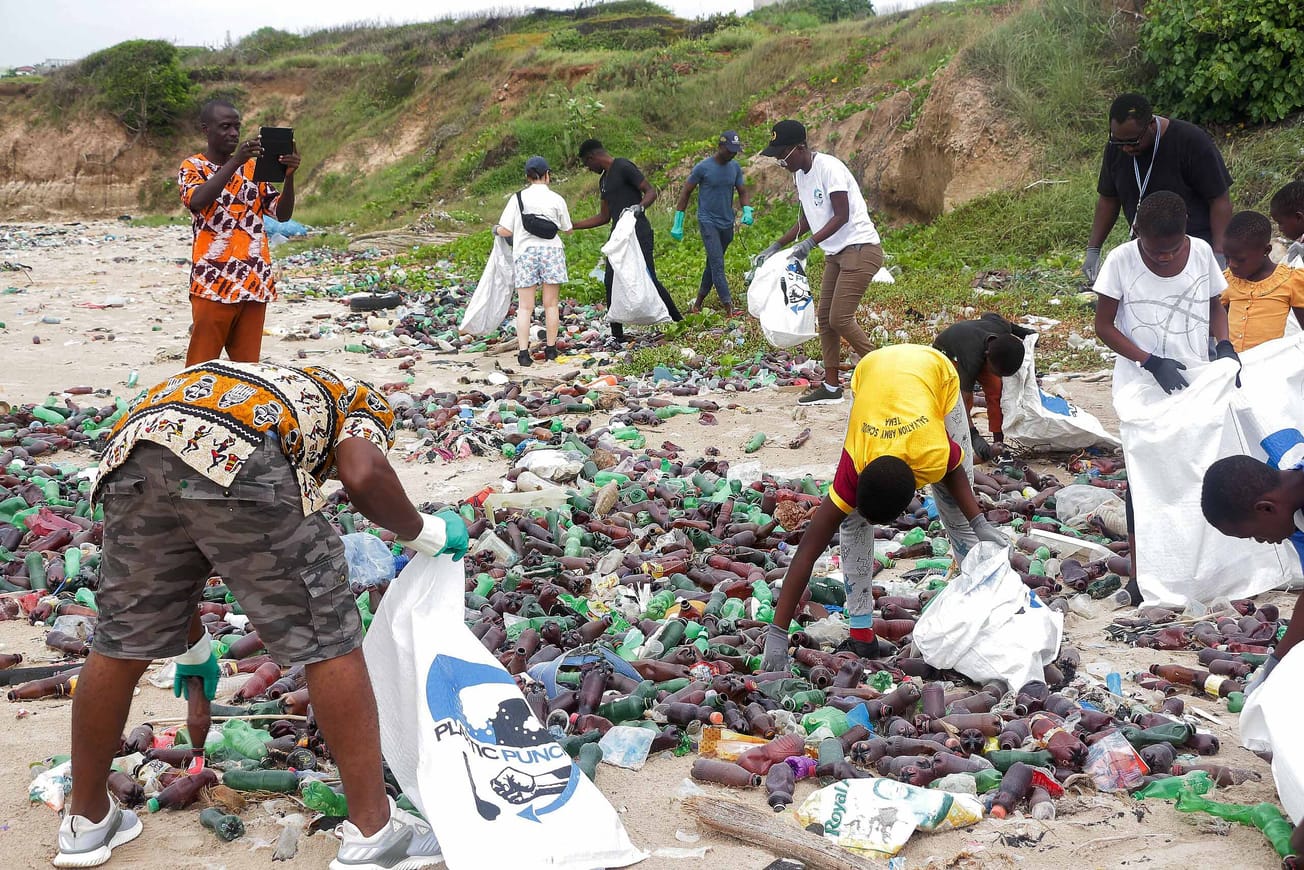In this special episode of “The AJ Bird Show,” host AJ Bird sits down with Professor Angela Riley from UCLA to discuss the intersection of Native American and global Indigenous sovereignty, climate policy, and the extractive industries that continue to impact Indigenous lands worldwide.
The episode delves into the upcoming U.S. election, which has significant implications for Native American sovereignty. With contrasting approaches from the two leading presidential candidates, AJ and Professor Riley explore how different outcomes could shape Native American rights, particularly concerning extractive industries like oil, gas, and mining. A return to a Donald Trump administration could mean increased support for land use for resource extraction, often with minimal collaboration or consent with Native American tribes. In contrast, the Biden administration under which Kamala Harris has served and was influenced by leaders like Interior Secretary Deb Haaland, has shown support for Native American sovereignty and environmental stewardship, though there is a significant gap remaining in the implementation of Free, Prior, and Informed Consent (FPIC) in the United States.
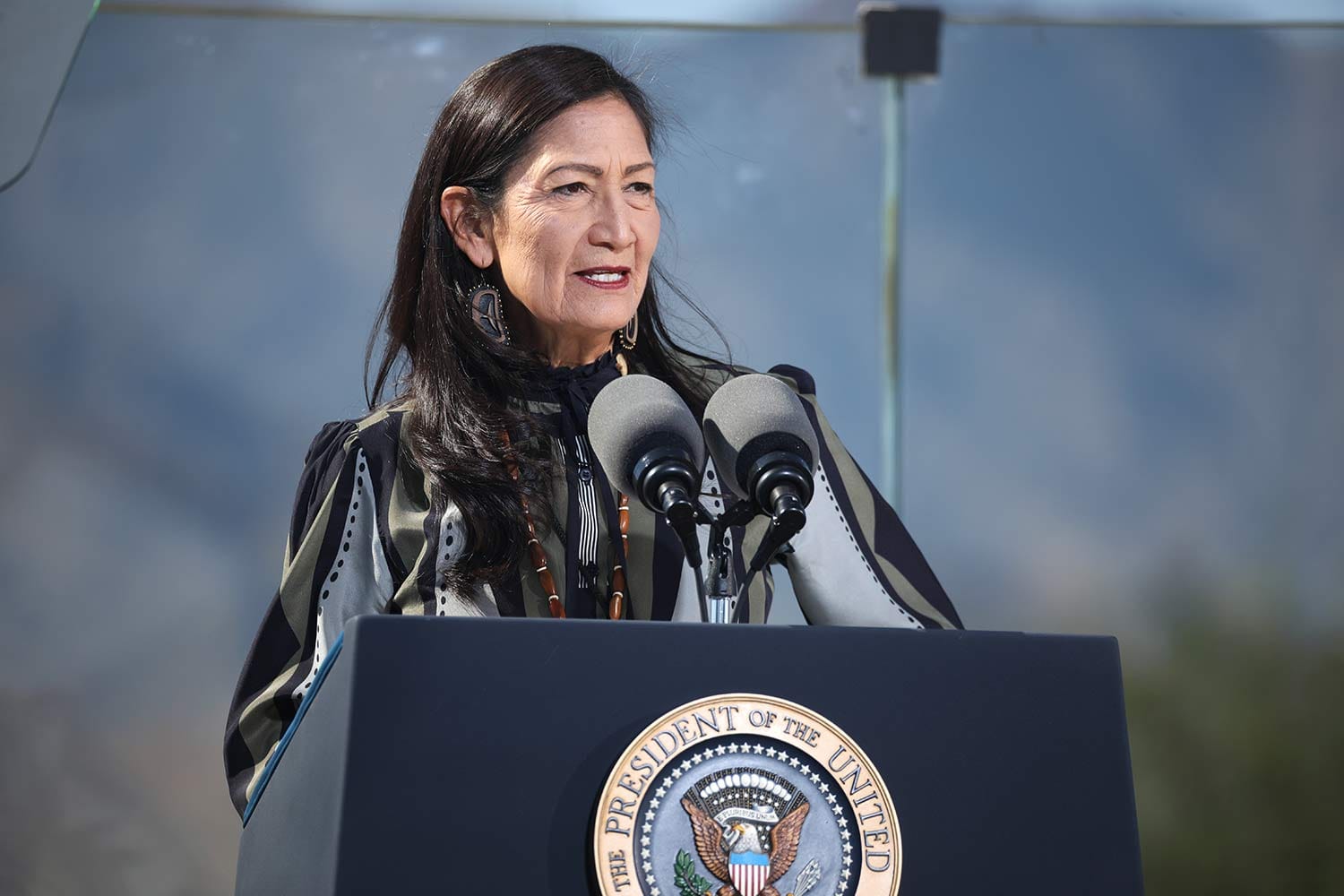
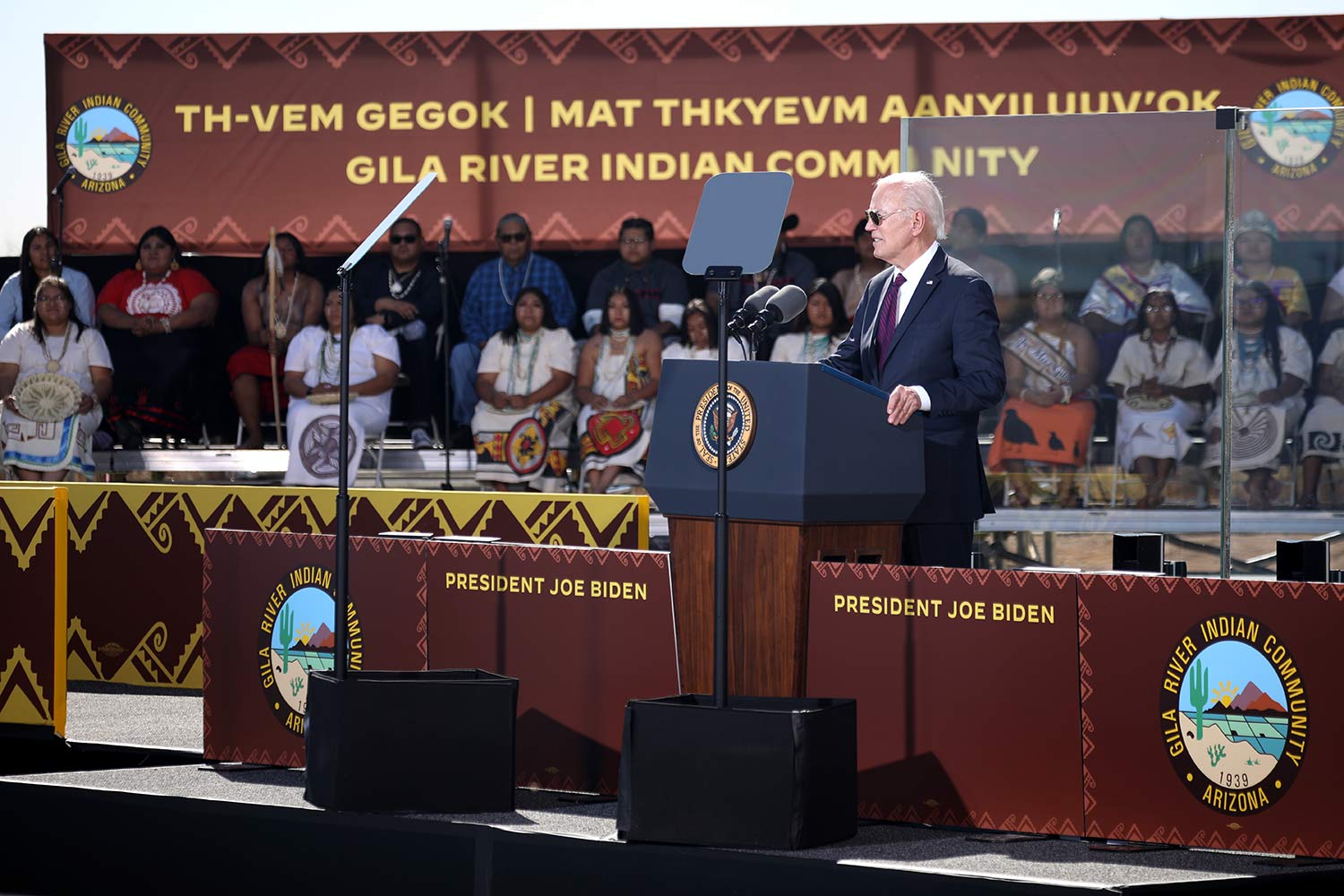
U.S. Secretary of Interior Deb Haaland joined U.S. President Joe Biden at the Gila River Indian Community in Arizona for a formal apology to the tribes regarding the abuse and trauma inflicted by the federal government’s Indian boarding school system. “For Indigenous peoples, they served as places of trauma and terror for more than 100 years. Tens of thousands of Indigenous children, as young as four years old were taken from their families and communities and forced into boarding schools run by the U.S. government and religious institutions,” President Biden said. Photos: Gage Skidmore
The episode also highlights the hidden costs of the green economy, which can often create a new form of colonization. While green projects aim to combat climate change, they frequently place Native American lands at risk for renewable projects without proper consent or benefit to the tribes. Professor Riley cites cases like the Rio Tinto copper mine which, under the guise of promoting green energy, threatens Apache sacred sites and ecosystems. The discussion challenges the romanticized idea of Native Americans as merely stewards of the land, underscoring their role as rightful owners with deep cultural and spiritual ties to their territories.
While Canada and the U.S. have expressed support for the UN Declaration on the Rights of Indigenous Peoples (UNDRIP), FPIC’s implementation is inconsistent. Professor Riley explains the legal framework around FPIC, its gaps in the U.S., and how international market forces, such as EU regulations, may indirectly push for higher human rights standards. The episode emphasizes the importance of Indigenous voices in environmental markets, stressing the need for ethical partnerships that guarantee Indigenous ownership and involvement in decision-making.
An essential point is that not all Indigenous nations oppose resource extraction. For some, it represents an economic opportunity. First Nations in Alberta and British Columbia have chosen to invest in pipelines and oil sands projects. This nuanced perspective highlights the diversity of opinions and economic strategies within Indigenous nations, framing these choices within the broader theme of self-determination.
Another integral theme in the episode is the connection between land rights and traditional knowledge. Professor Riley shares her work on protecting traditional knowledge through international bodies like the World Intellectual Property Organization (WIPO), underscoring how the loss of land correlates directly with the erosion of culture and knowledge. The conversation drives home the critical need for non-Indigenous audiences to understand that the destruction of land affects more than just the environment—it disrupts entire cultural and spiritual systems.
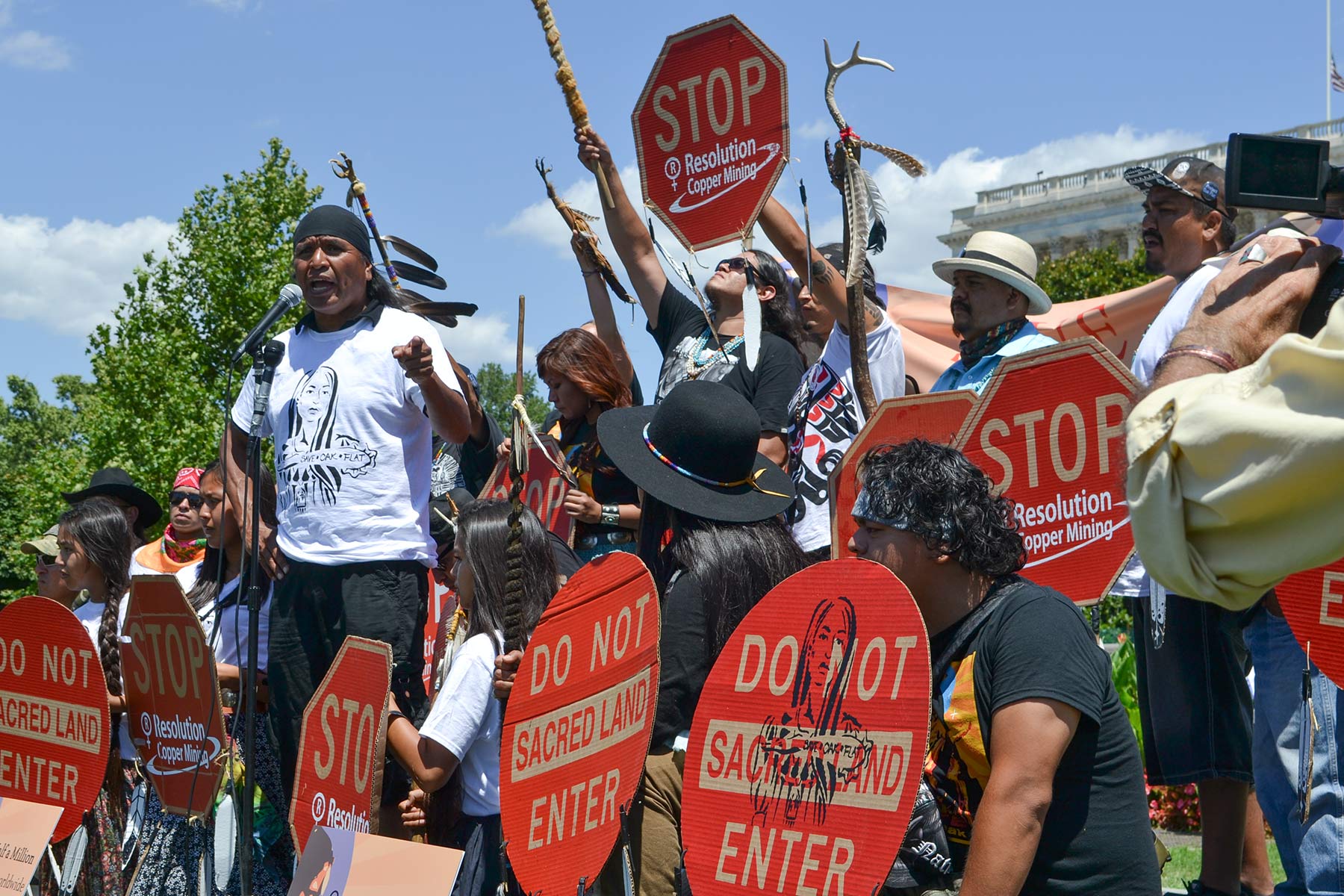
This episode of *The AJ Bird Show* provides a nuanced look at the ongoing struggles for Native American sovereignty amidst global climate efforts. With expert insights from Professor Angela Riley, the discussion explores the complexities of land rights, climate policy, and the role of Indigenous peoples in shaping a sustainable future. By tackling these topics, “The AJ Bird Show” seeks to educate its audience on the need for inclusive, just, and sustainable climate solutions that respect Indigenous rights.
Tune in to “The AJ Bird Show” on YouTube and on Spotify and Apple podcast platforms for this in-depth episode. Join the conversation by sharing your thoughts on social media using #AJBirdShow and #ClimateColonialism.


